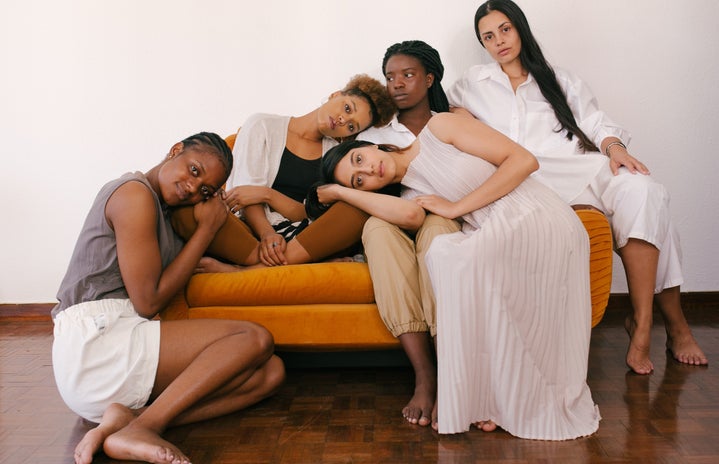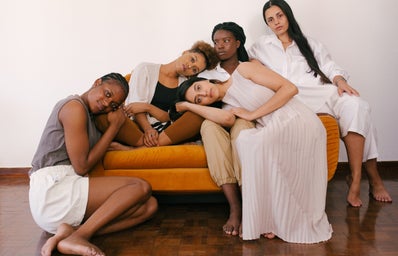Kaali ho jaogi. Translation: “you’ll turn black.” These are the words that have been instilled in me since childhood.
Colorism in India has been prevalent for centuries – even before British influence. Darker skin was associated with lower, working-class people who would spend their days in the fields beneath India’s relentless sun. Fairness was, and still is, associated with wealth, intellect, and higher class. When Indian parents describe their ideal daughter-in-law, she is always fair in complexion. It’s an incredibly unrealistic expectation to be fair if you’re Indian. You can simultaneously be fair by the realistic features of brown women and dark by the same society’s expectations of beauty. It becomes an insecurity of so many South Asian women to be as fair as possible. Certain colors of clothing are avoided entirely because it “makes you look darker.” Foundation colors are applied several shades lighter than your actual skin color so that you look paler.
The brand “Fair and Lovely” (now called “Glow and Lovely”) was heavily marketed in the early 2000s as a skin lightening product. It was sponsored by many Indian celebrities who used it to lighten their skin complexion. It has been heavily criticized in recent years for its promotion of colorism in India, but its impact still remains.
A Bollywood movie that is really popular and I love is “2 States” which is based on the true story of a Punjabi man who fell in love with a South Indian girl from Chennai, Tamil Nadu. Culturally, Tamilians tend to be darker-skinned. Yet instead of choosing a Tamilian actress for the role, they cast Alia Bhatt, who is probably one of the most light-skinned actresses in Bollywood right now. While Bhatt did an excellent job, the message of the movie got convoluted by trying to have a conversation about overcoming racial and cultural differences while having a female character significantly paler than her male counterpart. This is not uncommon in Bollywood. Movies depicting the various cultures of India will often do so incorrectly, with stereotypical accents, racist undertones, and putting actors in brownface to imply lower class. The impact of colorism in Bollywood significantly impacts Indian women. It creates unrealistic expectations of beauty that are achievable only through skin bleaching and lightening treatments that are incredibly harmful.
On the day of her wedding in 1996, my mother looked beautiful. She was 23 years old, just two years older than I am right now, and represented the ideal demure bride of the 90s. Her makeup was done cohesively despite the colorful eyeshadow and bright pink lipstick that was the standard of the time. And she was fair. She has always been fair. To this day people see photos of my mother and ask me if she has any European ancestry. Indians come in all colors and it’s not uncommon for people from my mom’s culture to be as fair as her. However it’s not representative of the more than 1 billion Indians in the world. My dad has never dealt with the expectations of fairness that even his sisters had. His genetics won out in the skin color my sister and I got – which is dark by societal standards and fair by realistic standards.
A go-to DIY skin care product that my mom has made for me for years is a mixture of turmeric and plain yogurt. I would use it for many different reasons. It reduces dullness, helps get rid of facial hair, and makes your skin soft. It also supposedly gets rid of the tan. When I was younger I used to use it regularly in hopes that it would somehow strip the melanin out of my face. I wanted to be light-skinned like my mom. No matter the lighting, I would never look as pale as her in any photos of myself. It was an insecurity I could never share with anyone. Growing up, the Indian community in my hometown was primarily South Indian. There, skin color ranges vastly and many of the kids I grew up with were much darker than I. By their standards, I was fairer and therefore had nothing to be insecure about.
5 years ago one of my cousins married a South Indian, and I was disgusted with the comments they got from his parents about his wife and son’s skin color being darker. They are both beautiful, and it makes me heartbroken to know people in my own family think that way about them. I tried to feel proud of my own skin color in solidarity. I spent the entirety of last summer in an office while the sun was out so I didn’t tan. My mom and other people in my life stopped making comments about the color of my skin and I started to feel confident in it. I expressed concern to my mom before we went to India, afraid of what people would say about the way my sister and I looked. “As if any of them would be more beautiful than you,” she scoffed in response. But what I realized was that I could be the most beautiful girl in the room, but I was still darker than my female cousins who regularly use the skin lightening treatments that are so popular in India.
It wasn’t until these past few weeks that I realized just how much I still internalized this societal standard. With the weather in East Lansing warming up, so many college students are spending their days outside getting tanned and soaking up the sun. And the thought entered my head: how are these people totally fine with getting darker? It wasn’t out of concern for sun damage that I was wondering about this. I take SPF protection very seriously and I’m never really worried about sunburns. But something about the idea of my legs being shades darker than my stomach or my chest had me spiraling all of a sudden. I sat in the car with a sweatshirt covering my legs so that the sun wouldn’t touch them. I pulled my sleeves down all the way so that my arms would be “safe.” I put off wearing shorts and tank tops to preserve my winter coloring.
It’s difficult to unlearn two decades of being told that your skin color isn’t right. It wasn’t always people telling me to my face that I was dark and therefore ugly. There were subliminal messages in the Bollywood movies I watched where every female lead was light skinned. It’s going to school where a majority of your classmates are white and European beauty standards are used to determine who is conventionally attractive. It’s a passing comment of “oh, he’s gotten so dark” while talking about someone who spent the summer in the sun. It’s looking at your cousins who share a lot of the same genetics as you and yet are a completely different shade. I thought it would be easy to just wake up one morning and decide “I’m proud of my skin color and I don’t care if I get darker.” Turns out it isn’t, but slowly it will be.


